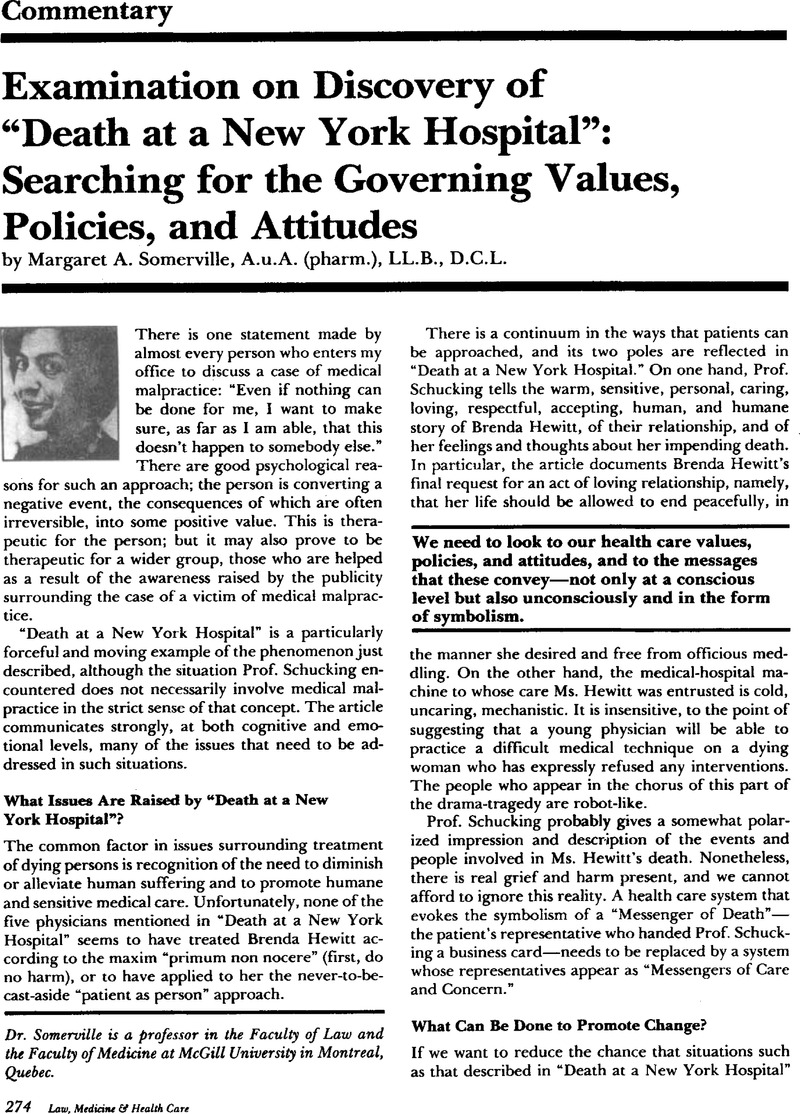Legal documents are usually perceived as instruments of cold, hard reality, needed because they govern relationships between strangers, not intimates (see C. Gilligan, New Maps of Development: New Visions of Maturity,
American Journal of Orthopsychiatry 52[
2]:
199 [
1982];
Toulmin, S.,
Equity and Principles, Osgoode Hall Law Journal 20[1]: 1 [March 1982]). Yet perhaps testamentary wills and marriage contracts could, ideally, also be characterized, like the living will and the durable power of attorney, as instruments of love and trust.
Google Scholar 